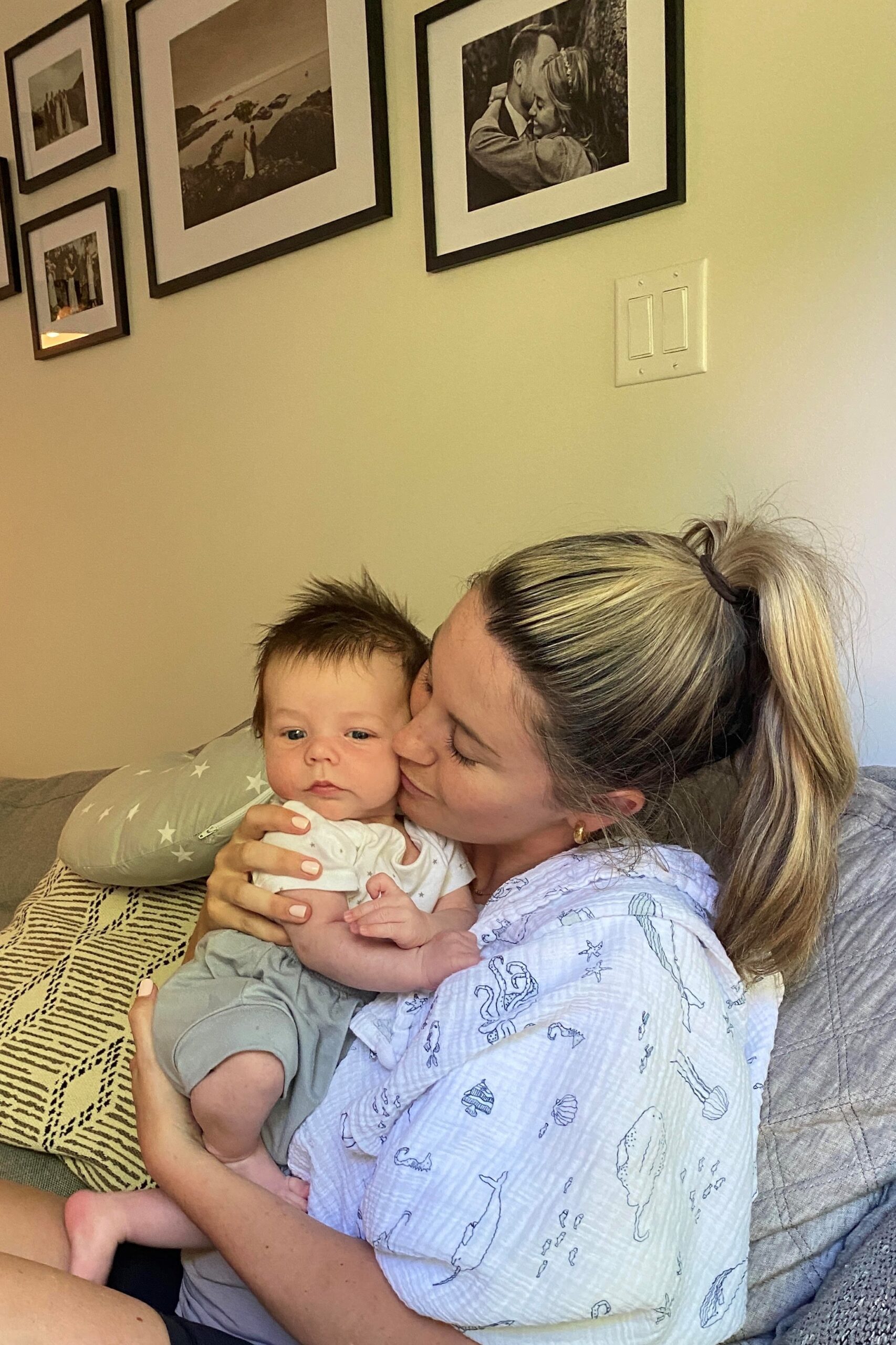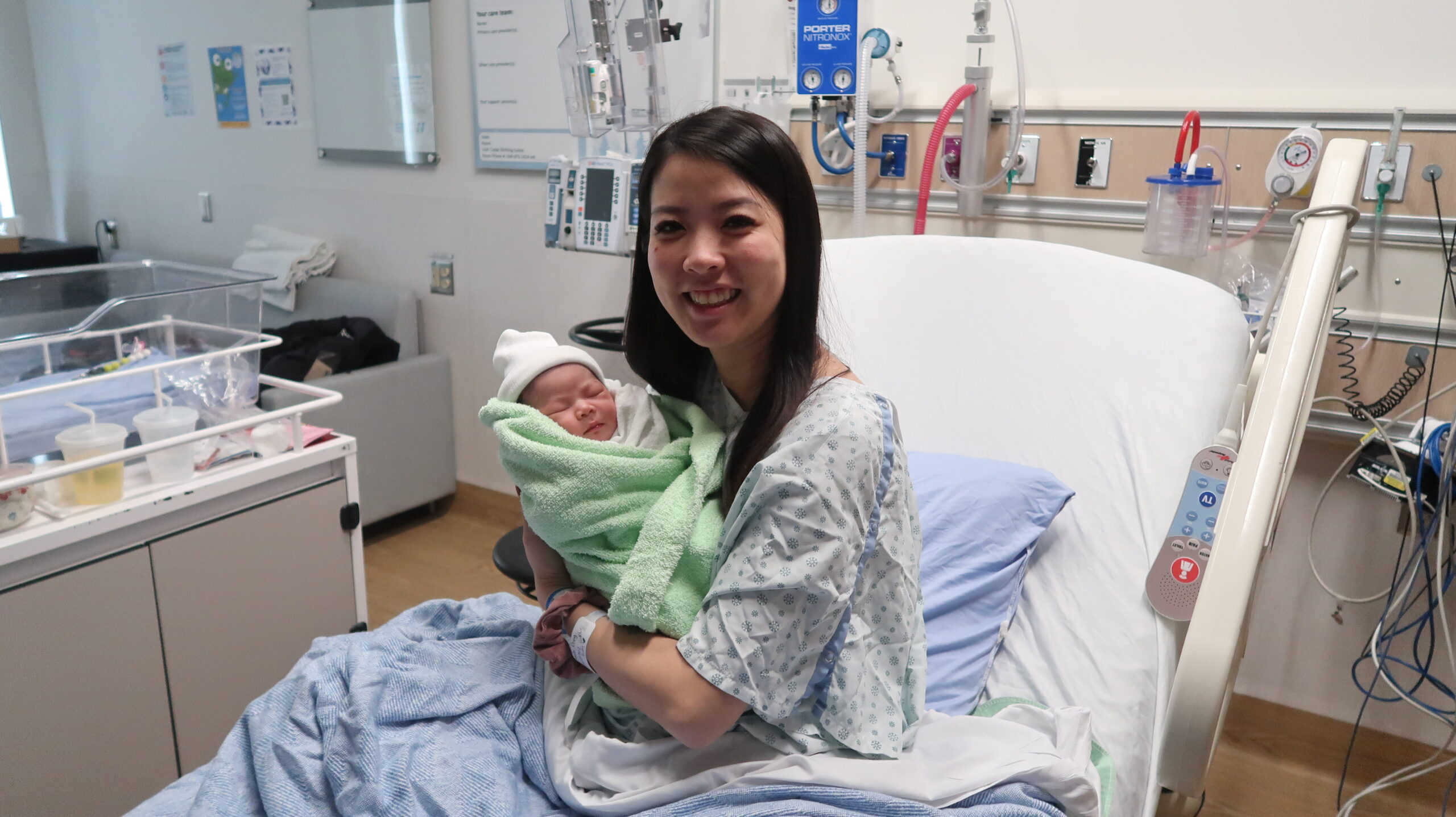
A message to our readers: the following article covers mental health, postpartum depression, anxiety, and bipolar disorder.
In BC almost one quarter (23%) of new mothers reported feelings consistent with postpartum depression or anxiety.
Today, in 2020, it remains very challenging to reach these women.
Too many do not have consistent healthcare providers, 138,000 people in Vancouver alone don’t have a family doctor. Plus there continues to be a drastic divide between accessing timely mental healthcare in the lower mainland versus the rest of the province.
And while there has been a noticeable societal shift in recent years towards speaking more openly about mental health as a whole, there are still many stigmas and misconceptions associated with reproductive mental health.
Many women expect to be happy when they’re pregnant and first give birth. Plus there continues to be much misinformation about the safety of antidepressants during pregnancy, and the potential impact on the health of the women and baby.
That’s where the Reproductive Mental Health Program comes in.
The Reproductive Mental Health Program at BC Women’s Hospital was established almost 30 years ago. It was the first of its kind in BC, and one of the first in Canada.
They see over 5,000 patient visits and over 1,000 new patient assessments each year. The most common conditions they treat are postpartum depression, anxiety, and bipolar disorder.
They offer individual therapies such as cognitive behavioral therapy, interpersonal therapy, and mindfulness-based therapies, as well as couples counselling, and group therapy. It is truly a multidisciplinary team. The program has nine psychiatrists, two clinical counselors, a triage nurse, a dietitian, project manager, and support staff.
They are also the source for the provincial best practice guidelines. In fact, every day one of their psychiatrists supports healthcare providers across the province with evidence-based recommendations. These range from advice on assessment, to treatment, to pharmacological options.
The next chapter: research
The program was the first of its kind to take this approach to clinical care in BC. So their next goal is to become a centre of excellence in research.
They’ve already witnessed the success of embedding research into a “real world” clinical care setting. It’s a positive feedback loop, each informs the other.
Studies have shown that it takes an average of 17 years for new research knowledge to become common practice. This approach helps bridge that gap, implementing key learnings that much faster.
This unique and innovative plan is one of four projects in BC Women’s Health Foundation’s Reproductive Mental Health campaign.
They have two initial research goals:
- Make mindfulness-based interventions available online.
- Develop online tools to help women make educated choices about the use of antidepressants during pregnancy.
Online tools – meeting women where they’re at
Currently, referrals to the Reproductive Mental Health program can come from family physicians, obstetricians, nurse practitioners, and midwives.
But with a program that is already in high-demand, combined with too many women navigating the healthcare system without a family doctor… the team sees a huge opportunity in supporting women online as this enables:
- Helping women while they are on a waitlist for in-person counselling.
- Protecting the anonymity of women who are beginning their journey, deciding when it’s time to reach out for help.
- Reaching women before their situation increases in severity.
- Anyone to access — be it partners, friends, family, or coworkers.
- Province-wide access, helping to bridge the urban / rural divide.
We know this is just the beginning.
STAY ENGAGED
- Register for the Shoppers Drug Mart Run For Women, a nation-wide run raising funds for women’s mental health needs across the country.
- Donate today to ensure women’s reproductive mental health needs are met.
- Learn more about our Reproductive Mental Health campaign.
Do you have a lived experience with reproductive mental health you’d like to share? Use your voice. By sharing your story, women across the province can relate, find solace, and muster the courage to share theirs too.
BC Women’s Health Foundation is BC’s largest non-profit organization dedicated to advancing the full spectrum of women’s health. The information shared is intended to educate, inform, and point readers to credible sources. It is not intended to substitute professional medical advice.
If you are struggling with your mental health, or concerned about someone else, call the BC Mental Health Support Line: 310-6789 (do not add 604, 778 or 250 before the number). It’s free and available 24 hours a day. If you prefer to access help and support via email, contact bcpartners@heretohelp.bc.ca.



